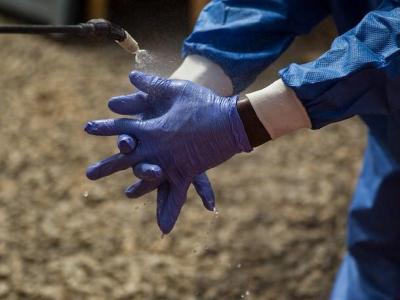Government shutdown cuts domestic food inspections
Because of the federal government shutdown, now in its third week, the Food and Drug Administration (FDA) has suspended all routine inspections of domestic food-processing facilities, a move that alarms some food safety advocates.
Sarah Sorscher, JD, MPH, deputy director of regulatory affairs for the Center for Science in the Public Interest (CSPI) said in a statement, "Regular inspections, which help stop foodborne illness before people get sick, are vital. Work to finish rules under the Food Safety Modernization Act has also ground to a halt, impairing efforts to improve produce safety, recall communication, and outbreak tracing."
On Twitter, FDA Commissioner Scott Gottlieb, MD, said the agency was taking steps to minimize risks during the shutdown. He noted that the agency is still doing inspections on all foreign food, but domestic inspections have been halted.
According to Gottlieb, 31% of those domestic inspections are for high-risk foods. Typically the FDA conducts about 160 domestic food inspections in a given week, he added.
Jan 8 CSPI statement
Scott Gottlieb Twitter feed
CDC ends probe of E coli outbreak tied to tainted California lettuce
Yesterday, the Centers for Disease Control and Prevention (CDC) announced that the outbreak of Escherichia coli linked to tainted romaine lettuce from California appeared to be over, adding that contaminated lettuce that sickened people should no longer be available.
A total of 62 people were infected with the outbreak strain of Shiga toxin–producing E coli O157:H7 in 16 states and the District of Columbia, 3 more cases than the CDC reported on Dec 13, 2018. There were no reported deaths, but 25 people required hospitalization, including 2 who developed hemolytic uremic syndrome, a type of kidney failure.
Illness-onset dates ranged from Oct 7, 2018, to Dec 4, 2018, and 30 of 36 people interviewed reported eating romaine lettuce in the week prior to illness.
"CDC identified the outbreak strain of E. coli O157:H7 in sediment collected within an agricultural water reservoir on an Adam Bros. Farming Inc. farm in Santa Barbara County, which was identified in the traceback investigation,” the agency said.
On Dec 13, 2018, Adams Bros. Farming, Inc, recalled red leaf and green leaf lettuces and cauliflower harvested at the end of November.
Jan 9 CDC update
Review: Low impact of last year's vaccination on flu vaccine protection
A meta-analysis published today in BMC Medicine found that receiving the flu vaccine in the previous season had a small impact on flu vaccine effectiveness (VE) against some strains but overall the benefits of receiving the vaccine each year outweighed any shortcomings.
Some studies in recent years have demonstrated reduced VE in people who received the flu vaccine the previous year, but findings have not proven consistent. In today's study, researchers from Canada and Hong Kong assessed 634 studies before including 20 in their analysis.
When the investigators compared vaccination in both seasons compared with vaccination in the previous season only VE was 25% higher against the H1N1 strain, 18% higher against B strains, but the same for H3N2 for those receiving flu vaccine both years. When compared with those receiving no vaccine in either year, the increase in VE was 62% for H1N1, 64% for B, and 45% for H3N2 for people receiving consecutive-year vaccination.
In addition, the group observed no differences in VE between those vaccinated in both seasons compared with those vaccinated only in the current season for H1N1 but 11% lower protection against influenza B strains and 20% lower protection against H3N2.
The authors conclude that the results support getting the vaccine each year regardless of vaccination history. They write, "Although VE was lower against H3N2 and B for individuals vaccinated in both seasons compared to those vaccinated in the current season only, it should be noted that past vaccination history cannot be altered and this comparison disregards susceptibility to influenza during the prior season among those vaccinated in the current season only.
"In addition, our results for H3N2 were particularly influenced by the 2014-2015 influenza season, and the impact of repeated vaccination for all types/subtypes may vary from season to season."
Jan 10 BMC Med study








